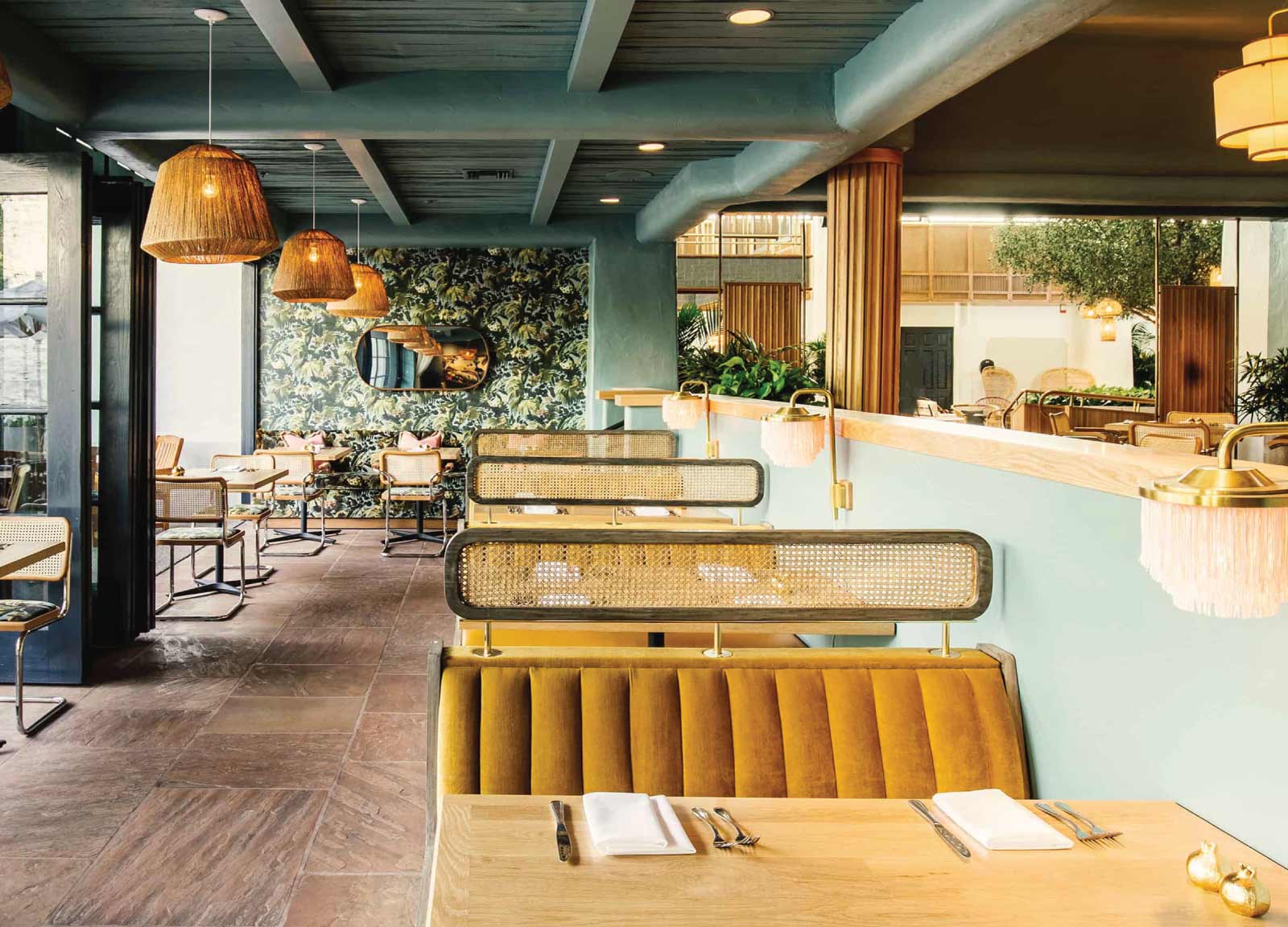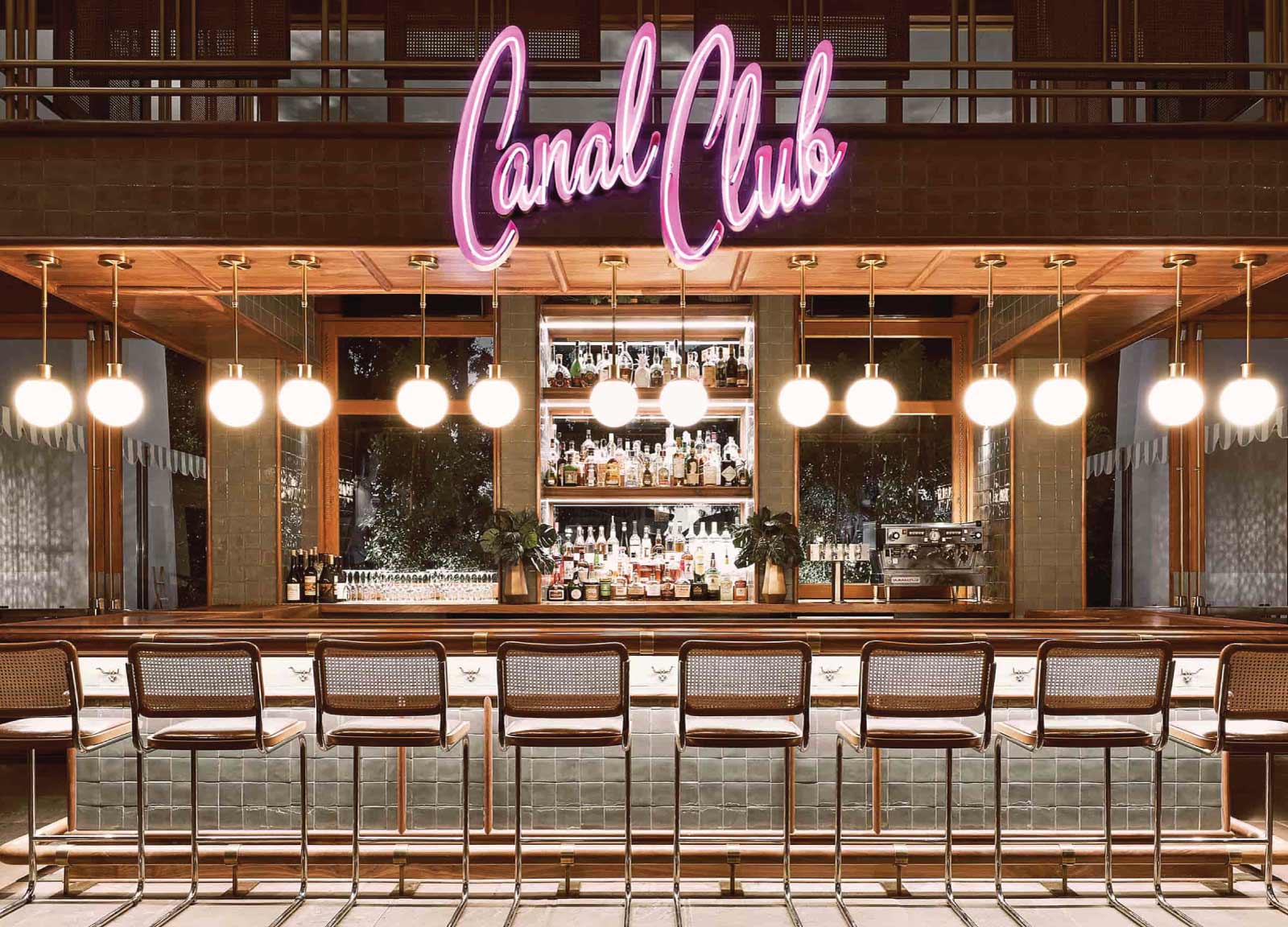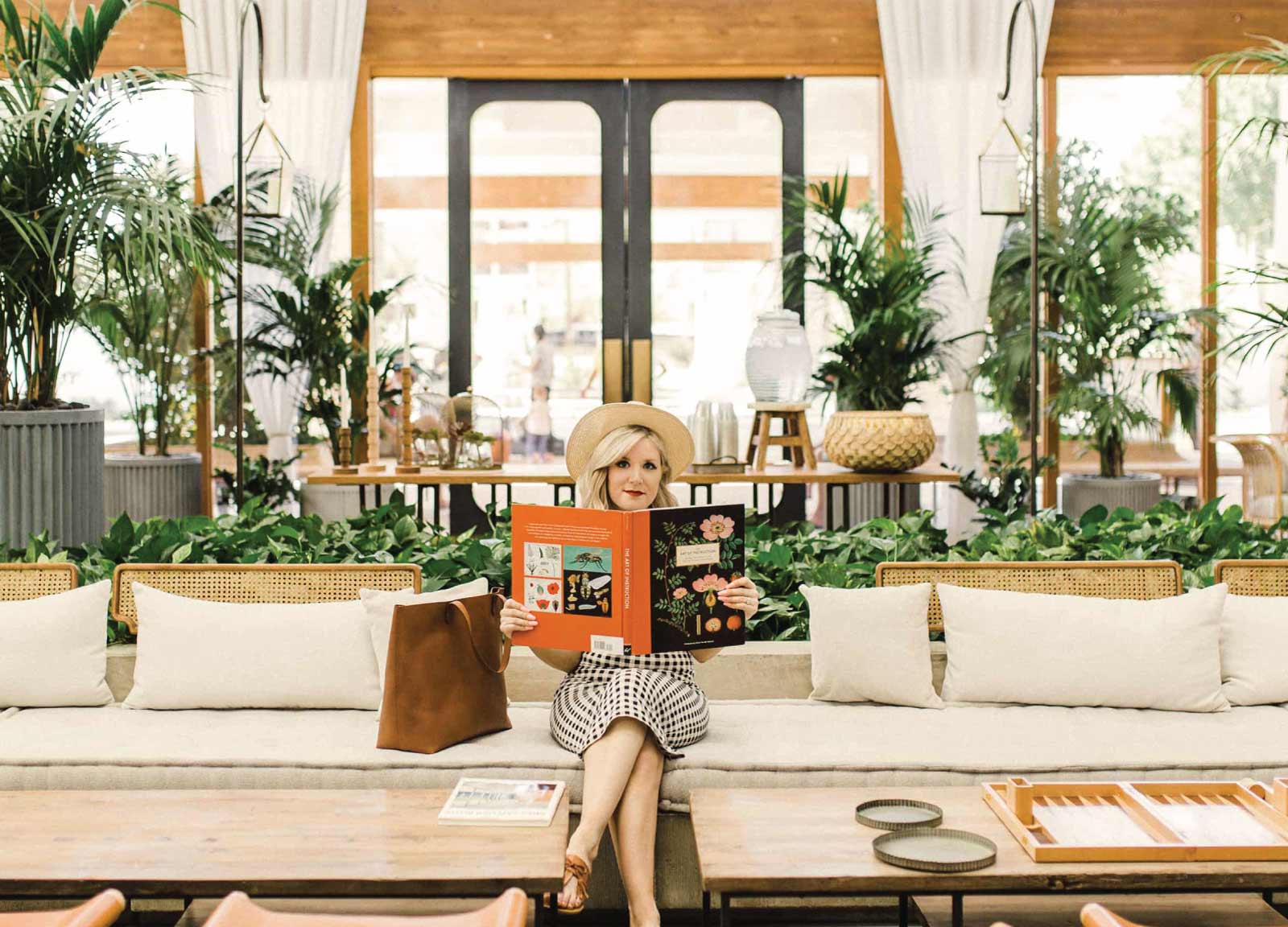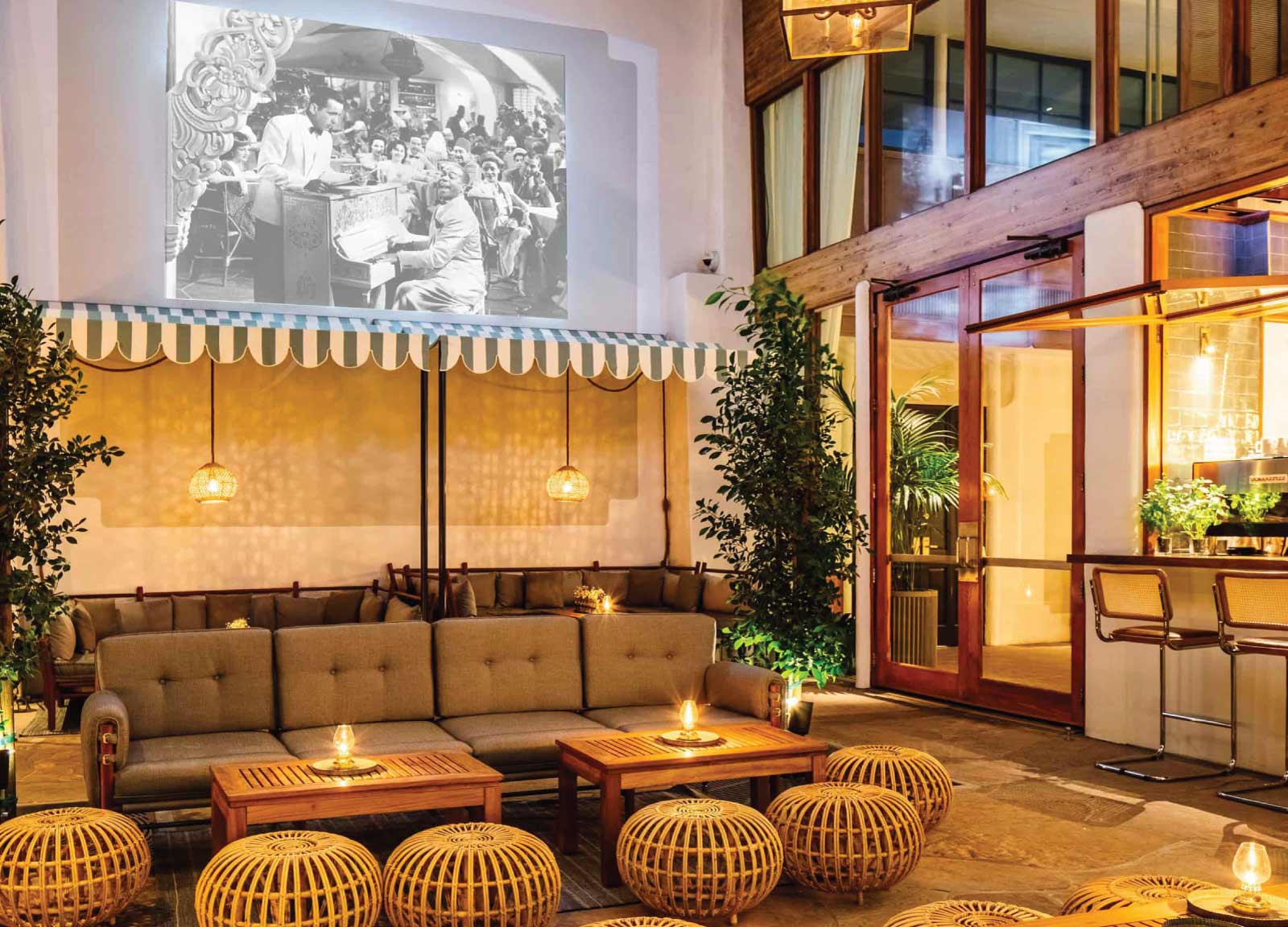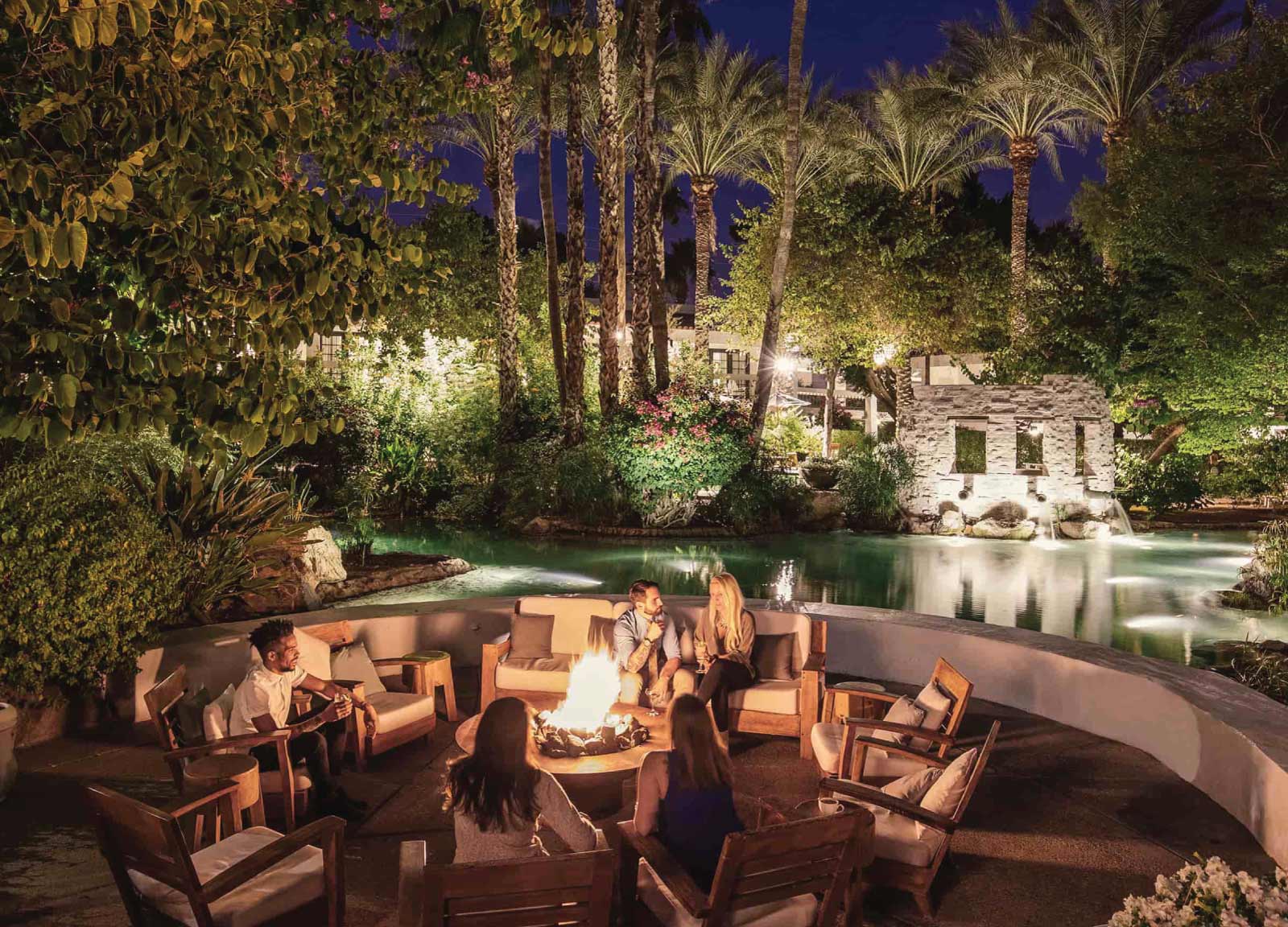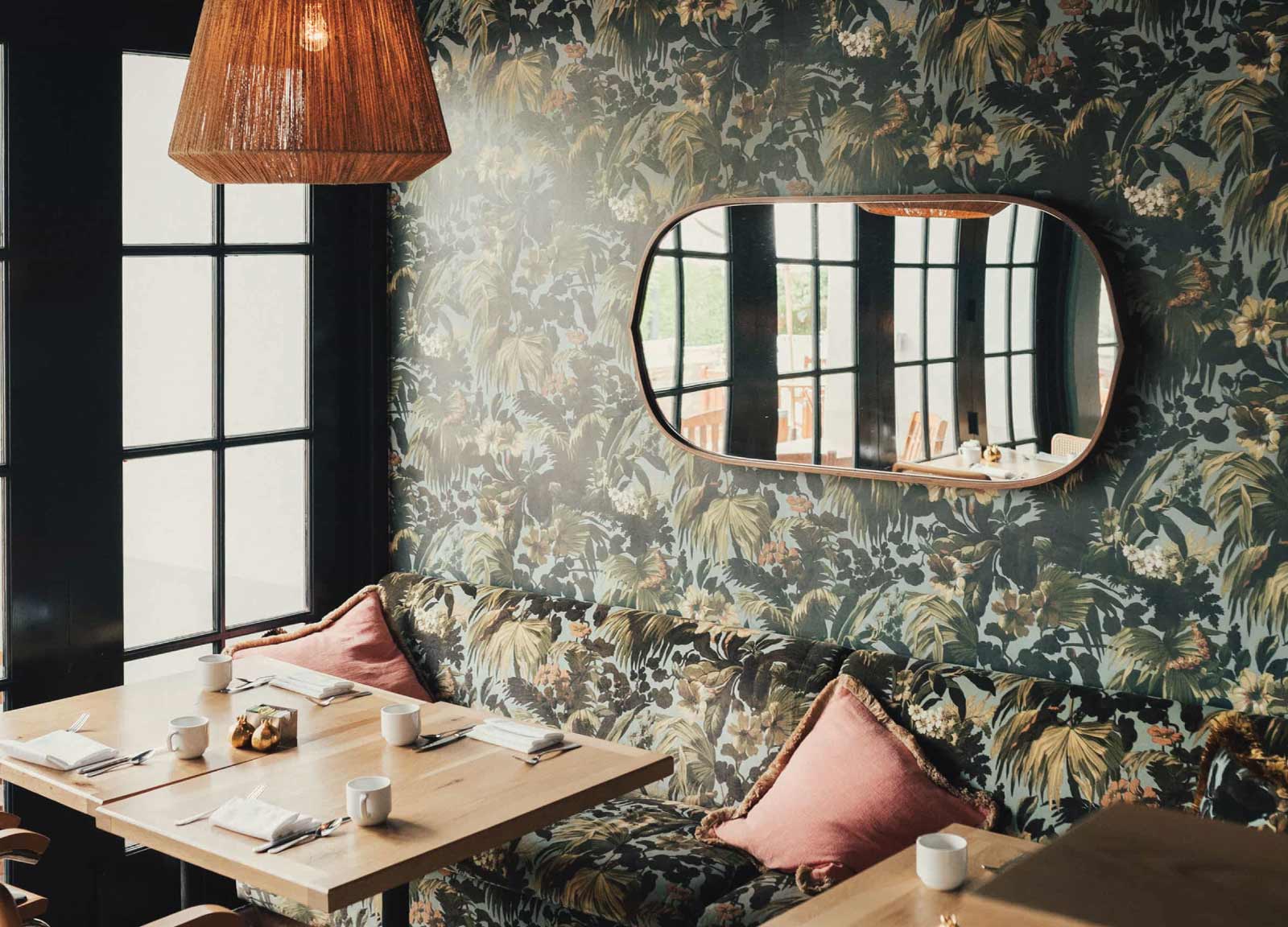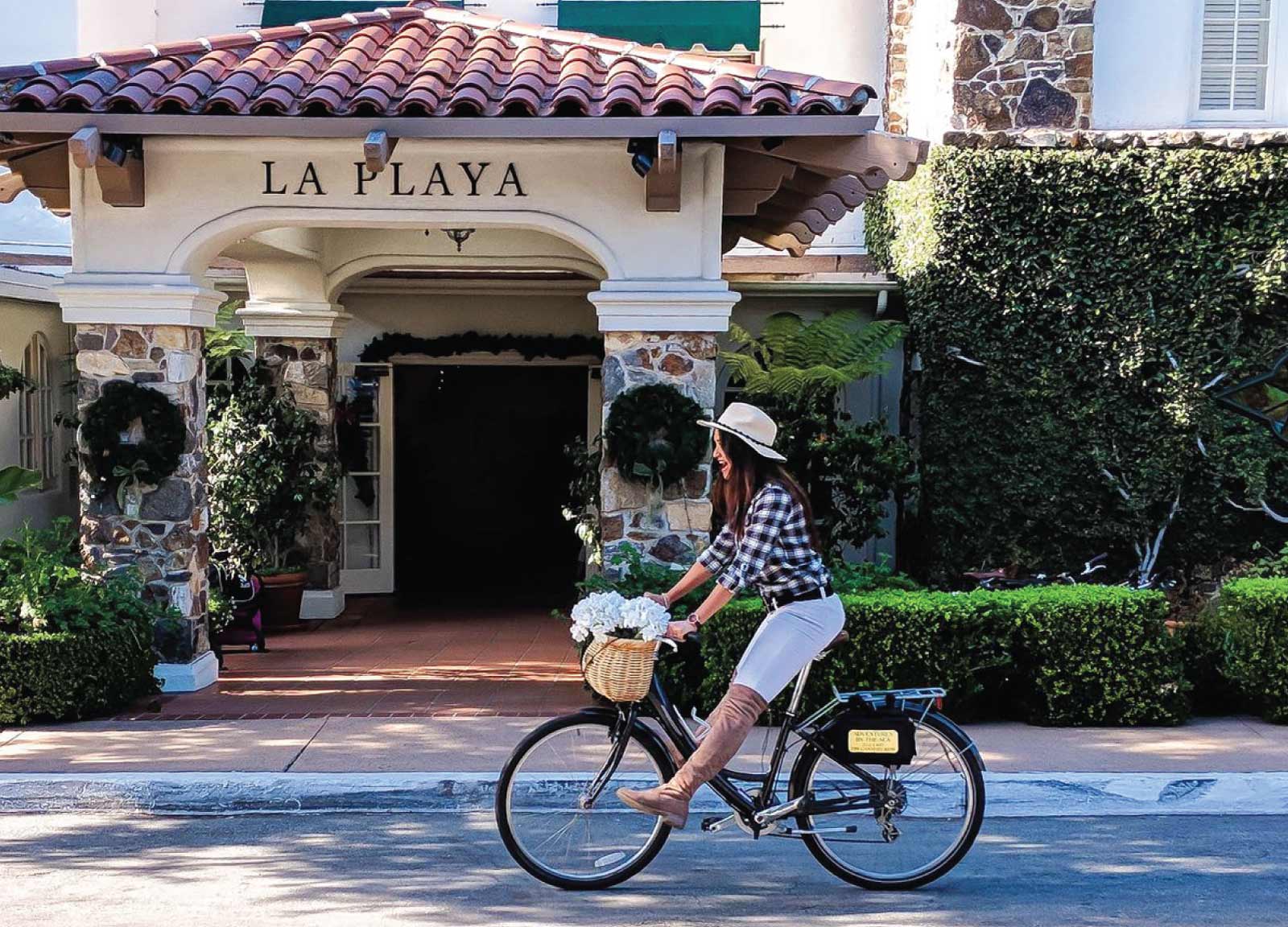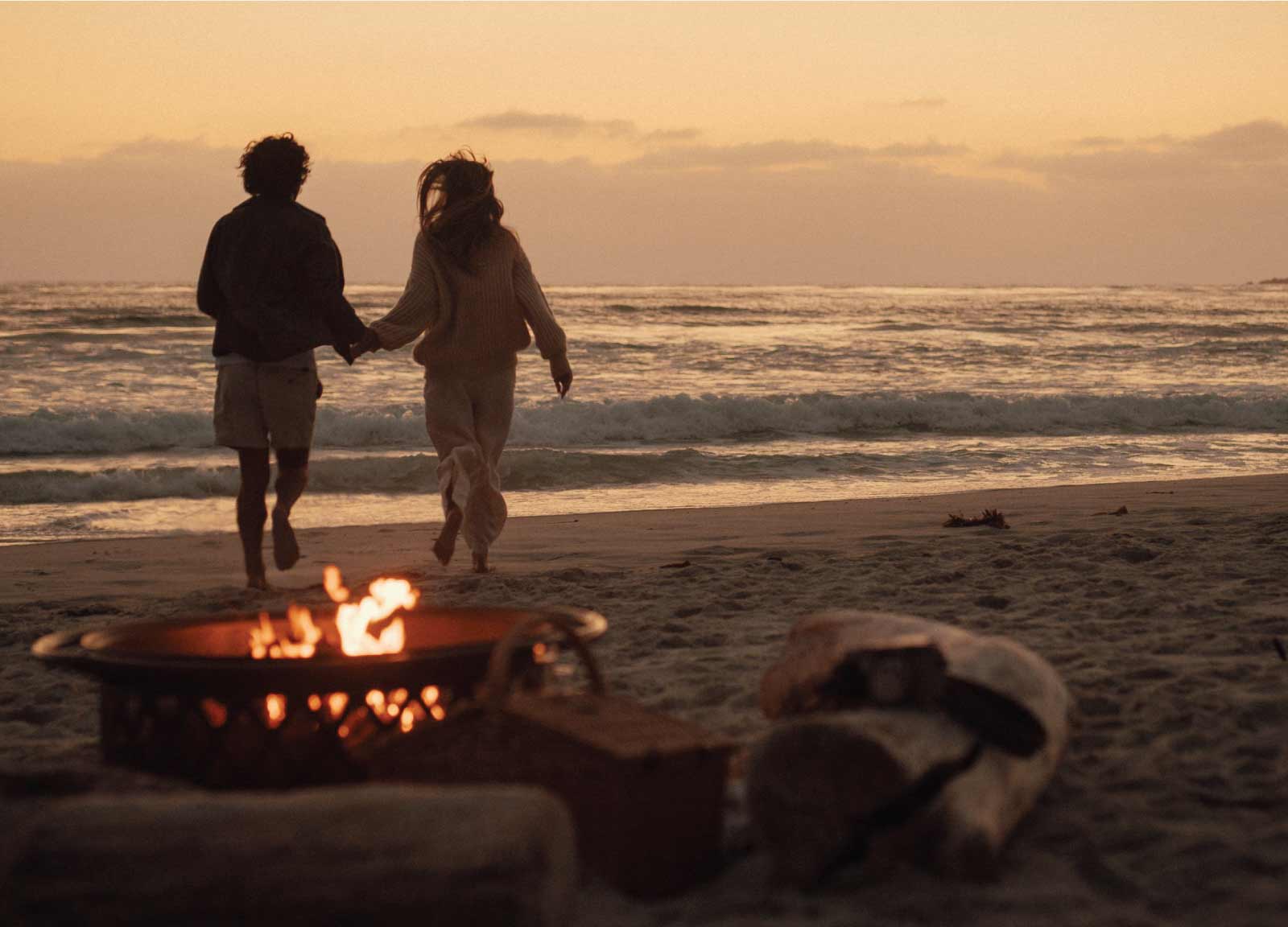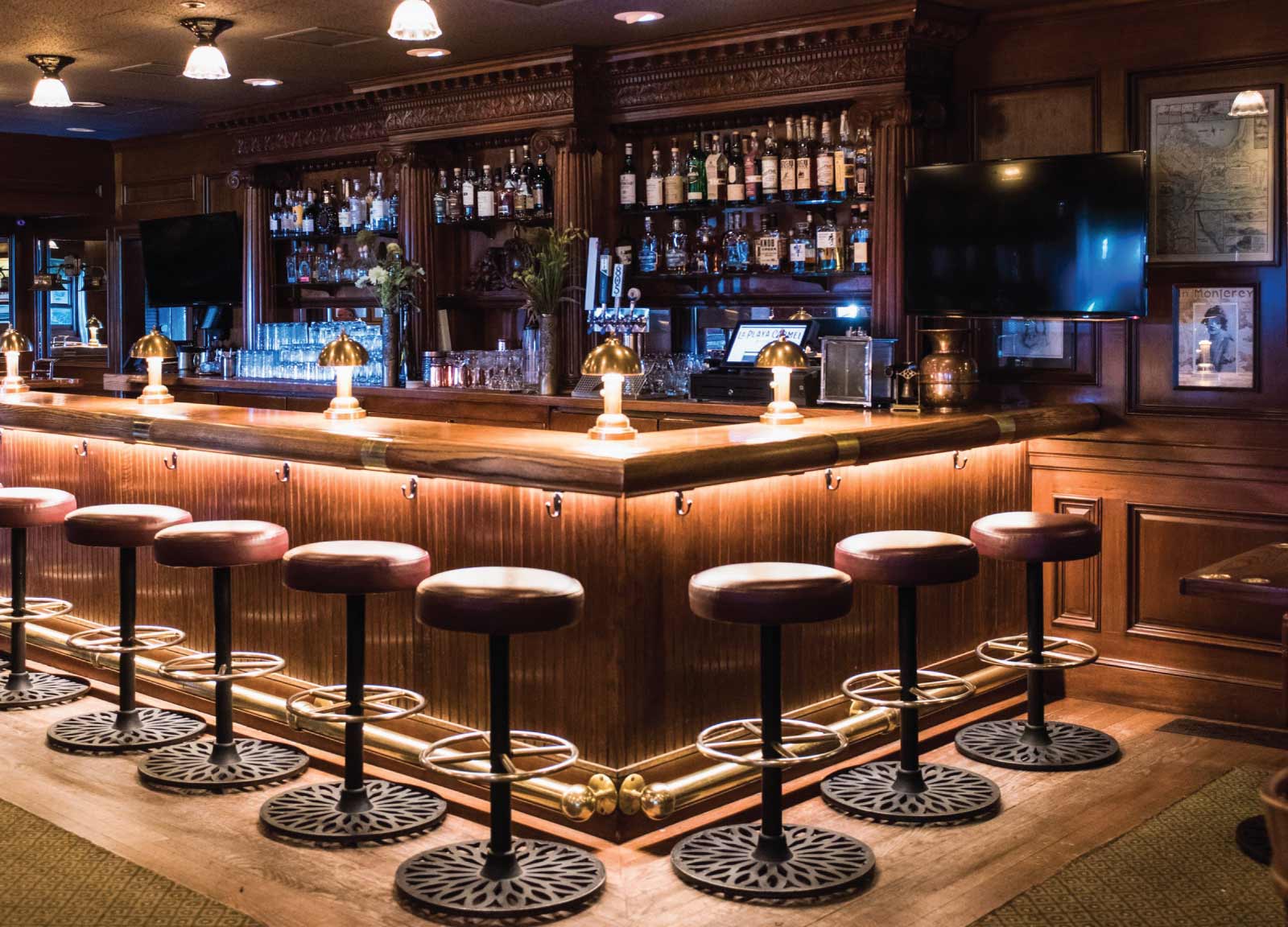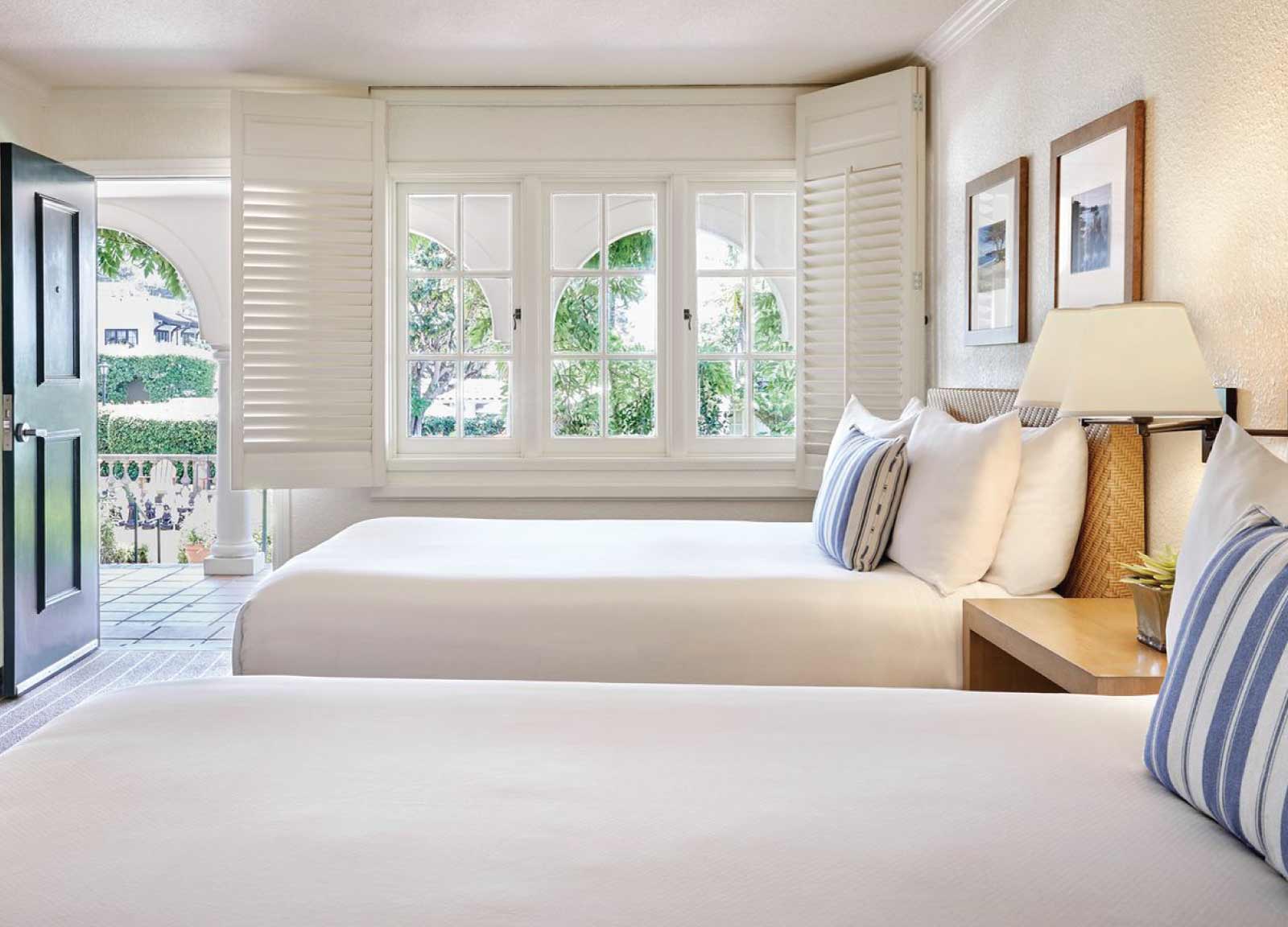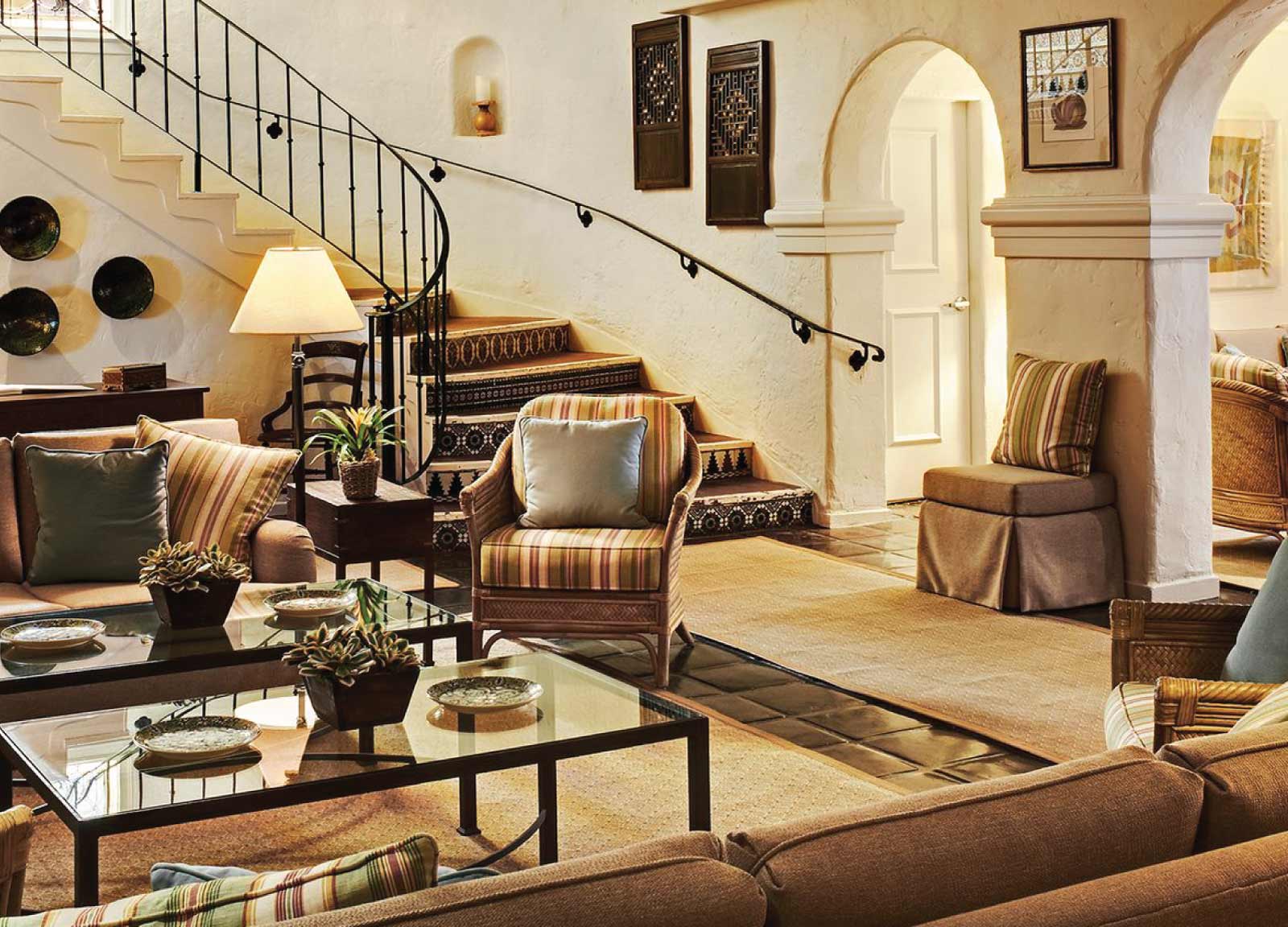Future Hospitality
podcast
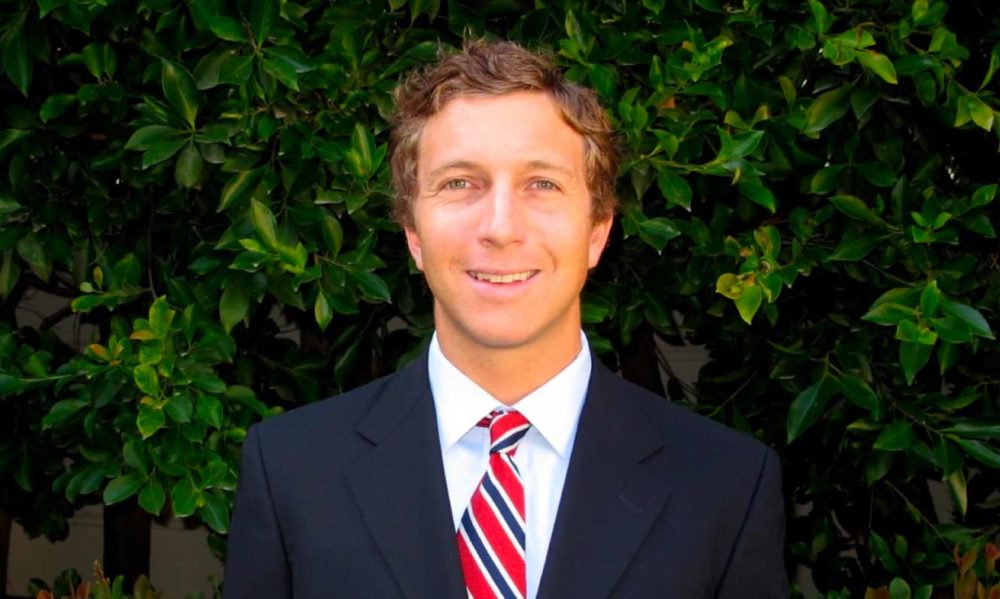
#6: Layering the Brand Story Through Every Detail: John Grossman
May 22, 2020
Jeremy Wells: John, thank you so much for joining us today on the podcast. We’re excited to have you.
John Grossman: Thanks for having me. This is a lot of fun.
Dustin Myers: Yeah, I think I first came across Classic Hotels a few months ago and it was actually the website for The Scott. I looked at a lot of websites being in the branding world. When I came across that, I shared it with Jeremy. I was like, “Man, this is so nice.” So the aesthetic and design and brand is just really well thought out, really well put together, and then come to find out that was one of your properties and started to learn more about Classic and who you are. Yeah, just really excited to talk to you about your journey in this industry and kind of where you’re going.
John Grossman: I appreciate the kind words on the website. As you well know, it’s pretty much a full time ordeal to redesign, re-concept, and then relaunch a website, especially across seven properties. And I know that there’s companies out there with many more websites to handle at one time. But for us, it was pretty much a year long journey. And I think it had been about seven years, six years, I think maybe, since the last time we looked at our website. So it was very well overdue. It was a fun and arduous process and luckily we leaned on some of our long-term design partners and put together a process and interviewed a couple of great firms and had a real tough time deciding who to go with, but ultimately ended up working with a firm out of the UK, which was interesting in its own right to deal with the time change and see how we could get things done so far away, but ended up being a really great process for us and I’m really pleased with the outcome and I appreciate the kind words, especially coming from you all and the work that you’ve done. So thank you.
Dustin Myers: The, the work you guys are doing is very impressive, very inspiring. It’s definitely a labor of love, I’m sure, as you guys have gone through each of those properties and made them all that they can be. Kind of out of the gate, I think the first question we’d all love to hear is just kind of a little bit about your background, kind of what has brought you into this industry, your journey of your career path and some lessons you’ve learned along the way.
My path was a little odd.
John Grossman: Yeah. It’s always interesting to find out how people got to where they are. My path was a little odd. I actually was born into a real estate family, and as a result very much wanted to carve my own path and get as far away from the family business as possible and I started my career after college in San Francisco working for a company doing workforce housing on the entitlement development side. And then I took a job in Sydney, Australia and spent five years down there working for aged care developer, again, on the entitlement side of things. So quite literally, on the other end of the earth.
Dustin Myers: Yeah. You can’t get much further away than Australia.
John Grossman: And I was almost lost to Australia. I really enjoyed my time there. It was a really enjoyable and compatible outlook on life and had a lot of good friends and the work I was doing that was really rewarding. But time has its way of revealing a path and kind of had an age-based epiphany when I was 30 and my father who’d started the company had turned 80 and it felt like if I was going to try out working for him and with him, the time was upon me. And so that was really what had propelled me to decide to move back, which was very difficult, and leaving behind Sydney was not easy to do. But I’m glad that I did and it’s been 10 years now and we have transitioned the company. Over the last five years or so, I’ve been able to take control of a lot of what he had built up and then bring it forward and put my own mark on things. And that’s been really fun and exciting and rewarding experience. And so I appreciate that opportunity tremendously and I’m very pleased of course that I made the decision to move back.
Jeremy Wells: What was that transition like between your father running the company and then you kind of stepping in? What sort of things occurred in that timeframe and how long did that take, that transition take?
John Grossman: I think I could probably do an entirely different podcast on the nature of family businesses and there’s probably been a lot written about it, but I think for us it was a very much just something that I wanted to try and he really wanted to try. It was a very organic process. There was nothing that we’d set out to do and there was no finality of the endeavor. It was really just, “Let’s see how this goes, and if it’s productive and fruitful, we’ll continue.” And I think that was the subtext that we had going into it. Of course, over his career, he’s just amassed a tremendous amount of experience and wisdom that I got to learn from and my eight years or so in development also brought forth different methodologies and approaches to the business. And so I was able to bring to him things that were different and new as well. And I think bringing those paths together was something that we were willing to experience and it turned out to be a really rewarding one for both of us. And I would say that it was certainly not without its bumps in the road. But overall, I think we really are so pleased that we did it. I think I could speak on his behalf as well.
What’s been really exciting too is his willingness and his ability to have an open mind even at an older age to listen, and as long as there’s a really good argument and an analysis done to why things should be different, what approaches should be taken, how to integrate different design approaches or service approaches or investment analysis into a given opportunity. That I would say would be the most valuable aspect of what he continues to bring to our relationship is his willingness to see things differently than he had previously seen them. And I think that makes the both of us stronger of course. He’s slowed down quite a bit, but I think overall the company really has benefited from that creative tension and those different perspectives.
Dustin Myers: Yeah. Now when you were in Australia, what exactly were you doing and what were some of the lessons you think that helped prepare you for where you are now?
John Grossman: Well, what I wasn’t doing was surfing enough. I love surfing. I wanted to be down there, hanging out on the beach, having a good time, and I got to do that a little bit here and there on the weekends. But the work was really all-consuming. And the company I worked for, which was a startup at the time, was very fast-paced and the founders of the company were just tremendous mentors to me. I just learned a lot about the overall business of real estate and how to put together deals and the value of entitlement in very difficult locations.
So the work we were doing was strictly pre-development work. We were renovating and in some cases expanding existing aged care facilities and doing so in neighborhoods and suburbs that were significantly anti-development. So tremendous amount of community involvement, a lot of stakeholder meetings, participation from both the residents in the facilities themselves and the neighbors and I think that put me in a really good place to understand the intricacies of how to manage, maintain, develop, and reposition properties and how we supply-constrained markets like Carmel and Laguna Beach. I continue to find that to be a useful skillset and would like to leverage that going forward certainly.
Jeremy Wells: Yeah. I think that’s really interesting how that skill set and that knowledge has kind of transferred over into what you’re doing now at Classic. As from what we’ve seen and what we’ve read, the philosophy behind the group there is just really, really intriguing. You can just see the quality that’s there and the insights that are there. As far as how that varies from property to property, what are some differences that you guys take into consideration? Obviously, each property kind of needs its own voice, its own positioning, and it has its own challenges, but how are some ways the same philosophy of Classic kind of carries through but with subtle differences maybe?
John Grossman: Yeah. I think the overarching, I would say, culture of the company is one of being nimble and adaptive and responsive. I think we are relatively small and we are a family business and we’re kind of like an old dinosaur as it relates to the real estate business today and hospitality, right? As you all know, it’s very bifurcated. You have owners and then you have managers and in some cases there’s an asset manager that’s a separate party that’s also in the mix. So there’s this real grind between the two competing concerns. Managers want to satisfy their own brand and owners want to maximize their return. There’s oftentimes this us versus them mentality in other business relationships within this industry and I think what I focus on and what I remind our team about all of the time is that we are existing in a very competitive landscape and have very, very few competitive advantages. And one of the things that we do have is this shoulder to shoulder positioning and it allows us to really have the empathy to understand the other, put ourselves in a position to work more creatively, collaboratively, and be much more deliberate and in often cases quicker to make changes.
… we really subscribed to the notion of making lots of strategic mistakes…
And so we really subscribed to the notion of making lots of strategic mistakes and we encourage that and we like to make mistakes that we can either continue to refine or in some cases find a new way of doing. But I’m not setting ourselves up for a mistake that takes so much time to unwind if it’s not turned out to be the right thing. So it’s a positive approach to entrepreneurial activity and allowing folks within the company to really stake their claim in an idea and push it forward and have a healthy debate and not feel like we’re going to do anything so fatal that it’s not worth trying. I think that’s one of the very few things that we have as an advantage within our structure and one that we carry forward with every single property and every opportunity and that’s why our properties themselves are different and really catered to the geography and the location that they’re in.
Dustin Myers: Yeah. And to do all of that remotely because you’re stationed in Sun Valley, Idaho, correct? And your team is kind of across the West. I guess you were working remotely before it was cool or it was required.
John Grossman: Yeah. So our head office is actually in Phoenix, Arizona, and it has been since the company’s inception. We also have a smaller satellite office in Santa Monica, which is where I actually had worked for about seven years, and we have a regional office in Boise, Idaho as well where we have a couple other actually branded properties and a mixed-use and home building operation. But when I made the decision to move away from Southern California, we implemented what then was pretty forward-looking for our company, which was the notion of outfitting our offices with video conferencing capabilities. And we’ve been doing Zoom meetings now for like I think it’s almost three years. And so when the pandemic hit and we were all forced to be working from home with the stay-at-home orders, it was almost like nothing had changed. And in fact, I think it’s empowered the rest of our team to conduct business in a way that was already comfortable, but now doing it to leverage the conveniences that they have at home. So it’s a situation that no one wanted to be in, of course, but we were uniquely positioned to be able to transition seamlessly into what we all are facing today.
Jeremy Wells: Yeah. Well, it was easy transition for you guys for sure. For those of you listening, I highly encourage you to go check out their hotel properties and whatnot, classichotels.com, but as you look through your portfolio of properties, each one has a very unique and very impressive aesthetic and design to it. I’d love to kind of dig in and kind of unpack what that process looks like, the brain strategy behind each property and how you guys go through that, make sure there’s alignment there and how the branding will probably influence a lot of the development or rebranding of a property when you’re going through that process.
John Grossman: Yeah. We transitioned our outlook too over the last, I don’t know, five or six years, and it’s not uncommon in the industry of course, but to start with the brand story and then build the brand itself and the design around it. I think most of that, of course, is influenced by the location of the property and then the inherent virtues of the buildings themselves. I think authenticity of course is something that has become kind of a red herring a lot these days and people are throwing that word around quite a bit. And so I’m hesitant to even bring that up, but I think what we try to do is never make a property something that it’s not. We also try to kind of either add to or peel back from the property itself, what we think the true essence of it should be. That also helps not only from branding and storytelling perspective, but it also, as much as possible, reduces the cost implications of whatever repositioning it is that we’re going to be undertaking.
So none of this is rocket science, but I think what we have seen, of course, is that the incremental value associated with the sum of the individual parts. And so as the story goes and the design develops and then we move on past the model room and into construction, we ended up kind of layering on and increasing the tapestry of the story and the brand and then have this added luxury of, again, working shoulder to shoulder as investor and manager. We’re able to implement and then maintain in an ongoing fashion, the brand story through our service culture. Again, this is not new or necessarily innovative. It’s really I think in the execution that we’re able to separate ourselves out a little bit and punch above our weight as it were just by sheer will and focus and attention to detail.
So it does become complicated because each property really does have its own identity and ethos and the managers of each property really have a lot of latitude to continue to refine and to implement the brand itself. And so that’s exciting as it’s something that becomes sort of a living organism unto itself.
Dustin Myers: Yeah. The intentionality really comes through and we all know that first impressions are big deal, but it’s just a really clear picture of how big of a deal it is because when you see one of your brands, you can tell there’s a lot of thought and intentionality behind it, which speaks to all the other aspects of the property.
John Grossman: I think one thing I would point out is, and again, this is something that others have used to good advantages, establishing a relationship and then nurturing it and working with a similar team over time. As much as I enjoy working with different consultants coming back to touchstones especially on the branding side for us has been valuable. I’ve been working with Ranker Design for six or seven years now, and it’s gotten to the point where I can show them the vision for the property, walk them through it and a couple of days later we’re going back and forth with design ideas and concept ideas and he’s able to almost read my mind now and that’s a really powerful thing to maintain and nurture that relationship and then extend it to some of the other folks that he’s been able to bring into the picture. I mean, he really, for example, took the lead in bringing us to creating the right group of folks to work on the rebrand for the websites and even the video project himself. He’s really been helpful and kind of pulling together a cadre of individuals that fits the way in which we work together.
Jeremy Wells: John, I’d love to dig in also to… I know that we had previously talked about some of the roadside motel concepts that you’re working on and those sounded really interesting, as well as like the kind of the tertiary markets, like lesser, smaller towns with college presence and things like that and kind of what the future of that looks like for Classic moving forward too.
John Grossman: Yeah. That’s been really a fun one. We just bought a 1962 Howard Johnson, which is nowadays in, but it was built originally as a Howard Johnson on route 66 in Flagstaff, Arizona, which is right across from the entry to Northern Arizona University and about 45 minutes away from Grand Canyon. So Flagstaff also is only about a two-hour drive from our head office. So it allows us to have close access and direct access to that property. But I think what the tertiary market focus for us has been is looking at places that are often overlooked and recognizing that because of the way media works today and Instagram and all of the different ways in which people consume their understanding of how they want to spend their time, money, and enjoy themselves, elevated design and elevated branding experiences are no longer reserved for large cities or hip neighborhoods in large cities.
And I think that there’s a real opportunity for people to be able to take those road trips from whatever town that they’re in and have an experience that is elevated and interesting and unique and speaks to them in a way that a lot of the smaller towns haven’t yet been able to. And so it’s, again, something that we’re seeing as a “trend”, certainly. And I feel very strongly that this isn’t going to be a flash-in-the-pan trend. I think that as people seek refuge outside of large cities, especially I think in our post-pandemic world, there will be an increased awareness of the world around us and opportunities for people to get out and about and having these smaller towns as gateways to these other experiences we think is really fun and exciting.
And I guess personally speaking, I grew up in Idaho in a small town, and so I’m kind of primed for that. Perhaps it’s just me saying out loud, but I feel within. But having been in this business now for a little while, there were some other data points that I’ve been able to point to, to really fortify this strategy and approach. We’re really excited about the project that we’re working on. So it’s going to be called The High Country Motor Lodge and it is going to have a really fun, kind of a Nordic spa component, which we also the focus on wellness and kind of a little bit of a… kind of a little brother nod to our neighbor in Sedona, of course, which is very well known and very high end and has a lot of important and powerful wellness and spa opportunities.
Tipping our hat to them a little bit in a bit of a grittier fashion, we’re going to do these four little tiny houses that are spas or I should say saunas and then have a communal hot tub and a cold plunge. It’s not going to be like a treatment room and a whirlpool and kind of a traditional spa experience. It’s going to be a bit more Spartan, but you’ll have your own fire pit and seating area. It’s going to be something that connects you to nature in a way that a lot of the spas and the experiences and other places that don’t yet do. And also coming out of the Grand Canyon, you don’t want to be right back in a building. So having that connection to nature and having one foot in and out of nature and having a good transitional experience we think will lend itself to people feeling very comfortable and responding well to it. So we’ll have to get you out there to have a look around when it’s done.
Dustin Myers: Yeah. I can’t wait to see it. The revival of the roadside motel I think is just an awesome concept and I know you guys will do it well. One of the questions we ask all of our guests, the title of the podcast is Future Hospitality. What do you think will shape the future of the industry as a whole? What do you think is going to influence where it’s headed?
John Grossman: Well, I think one thing is obvious and one is two things really. So one is obvious and one is unknown. The obvious one of course is the rise in the sharing economy and the alternative accommodation, Airbnb, and the stratification within that. So you have Airbnb Plus and Stay Alfred and Lyric and Sonder and all these different ways in which you can stay in a shared space, obviously privately or shared. How they respond and how they adapt and how the consumer chooses to continue utilizing that type of accommodation coming out of the pandemic will be an interesting and telling sign as it relates to the future of hospitality. And that segues to my second point, which is the unknown one is how people choose to travel after things settle in whether we find a vaccine or we have heard immunity as people have been talking, I really am interested and curious about the lingering effects, the psychological lingering and effects and communal lingering effects of the way in which people will choose to interact once we are able to get back to interacting in person.
I’m a little concerned that people might… I think there’s been, what is it, one of the people coined it, revenge travel. So the idea that people are going to snap back to travel really, really quick and I want to know who these revenge travelers are and what it is that makes them tick and what they’re thinking and feeling and then what it is for people that aren’t going to be jumping right back to travel and maybe there’s going to be a big cohort of people that we don’t know a whole lot about that have decided to, in fact, not travel as much or travel differently. And so that’s what I’m really concerned about is it relates to the future of hospitality. This is probably the most interesting and unknown aspect I think that we have before us. and I think there will be a lingering and long-term after effect, subtle, or otherwise that will influence the way that people choose to spend their time and money. Again, one of our benefits as a small business is that we have the ability to be flexible and adaptive and react more quickly than larger businesses. I’ll be looking to see what people do and think, and then we’ll be working quickly to try and implement a plan to appeal to them. And if need be repositioned and undertake additional renovations into the future. I mean, that’s our goal and that’s, again, our point of difference.
Jeremy Wells: I love that term, revenge travel. That cracks me up. Yeah. I think all those things you’re talking about is something the industry is just kind of waiting to see, only time will tell and it’s something we’re going to have to learn and adapt to, like you said. So definitely some big challenges, but big opportunities as well. The final question here and like Dustin said, it’s the question I’d like to ask all of our guests is related to the future of hospitality, but more specifically to you and personally. What things excite you about the future, whether it’s personal things or things related to your business or the industry? What are some trends or technology or upcoming developments that you’re really excited about?
John Grossman: What I’m excited about is just to see how it is that people, again, I mean, it kind of dovetails back to the comment I just made about how people get back to it and I think what was very exciting to me coming into this pandemic, of course, is the way in which independent hospitality and that includes restaurant and nightlife were all being really commingled into unique spaces. And there’s lots of great companies and designers that you all know that have really dazzled us and some of it ends up being fad based and other others end up being very much long-term and entrenched within the way that we like to interact. I’m still excited by the things that we saw coming to fruition. I mean, it seems like forever ago, but even three or four months ago, the things that we were doing and seeing we’re excited by. I don’t see them going away entirely. What I mean by that is these spaces and experiences that need to be consumed by an in-person experience and cannot be replicated elsewhere.
And so when you go into a space that is so beautiful or so interesting or so engaging that you feel like you want to be there and linger, I think those are the things that are going to continue to be exciting for people as they choose to travel and as they choose to spend their time. I’m hopeful that that is a sustained entity and that there’s room for good design and branding forever. I really think there will be. I’m not necessarily suggesting that there’s going to be tremendous innovation. I think it’s going to be further refinement and having a voice and a perspective that really connects with people.
These are kind of nebulous things to be thrown out there. I know it’s kind of low hanging fruit for me to say, but I think it’s my job to be aware of who it is that are most accurately and effectively telling these stories and then to seek them out and work with them and have a collaborative approach and come to something that is really authentic and resonant. If I knew the answer already, I’d be doing it and I know that I don’t and I know that it takes kind of a collection of thinkers and doers. And I’m just happy to be a humble participant in that and give people a voice and an opportunity to make their mark.
Dustin Myers: That’s awesome. Well, we’re huge fans of what you’re doing and can’t wait to continue to watch as things develop and come to fruition. It’s going to be awesome. So how can people keep in touch with you and learn more about Classic?
John Grossman: Well, you can hit us up at our website, of course. I will say as an outro, we have been called Classic Hotels for I think it’s about 25 years and we are actually pretty excited to announce that we’re working on a rebrand. So keep an eye on the space. The rebrand is going to be very much a nod to the nature of our family business and we’ll be connected to the founders, my folks, and I think it’s a really fun way of course for us to tell our story internally to all of our associates, but also connect ourselves to the folks that are going to be visiting with us so they understand who we are and what we stand for. So classichotels.com is our website right now, but when we relaunch, you’ll be redirected to the new site and the new name and that should be, I’d say, in the next month or two.
Jeremy Wells: Well, John, thanks for joining us today. It’s a pleasure.
John Grossman: Take care guys. Thanks so much.
[End]
